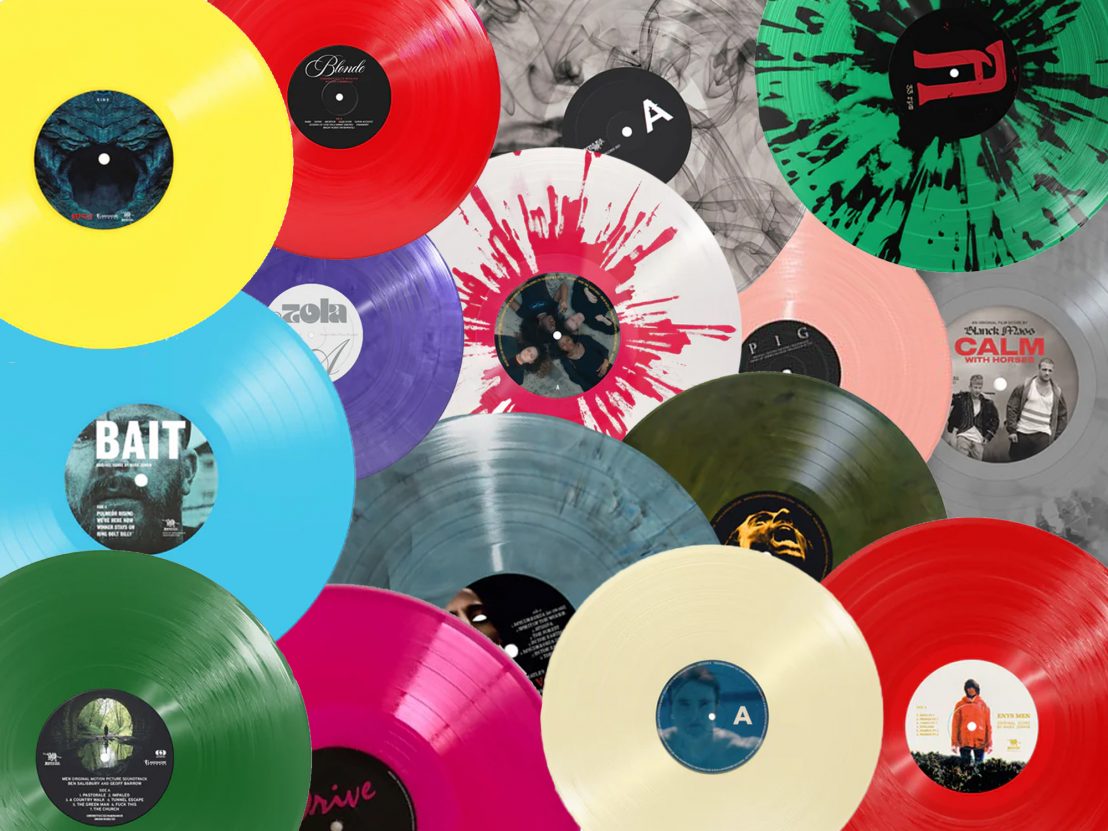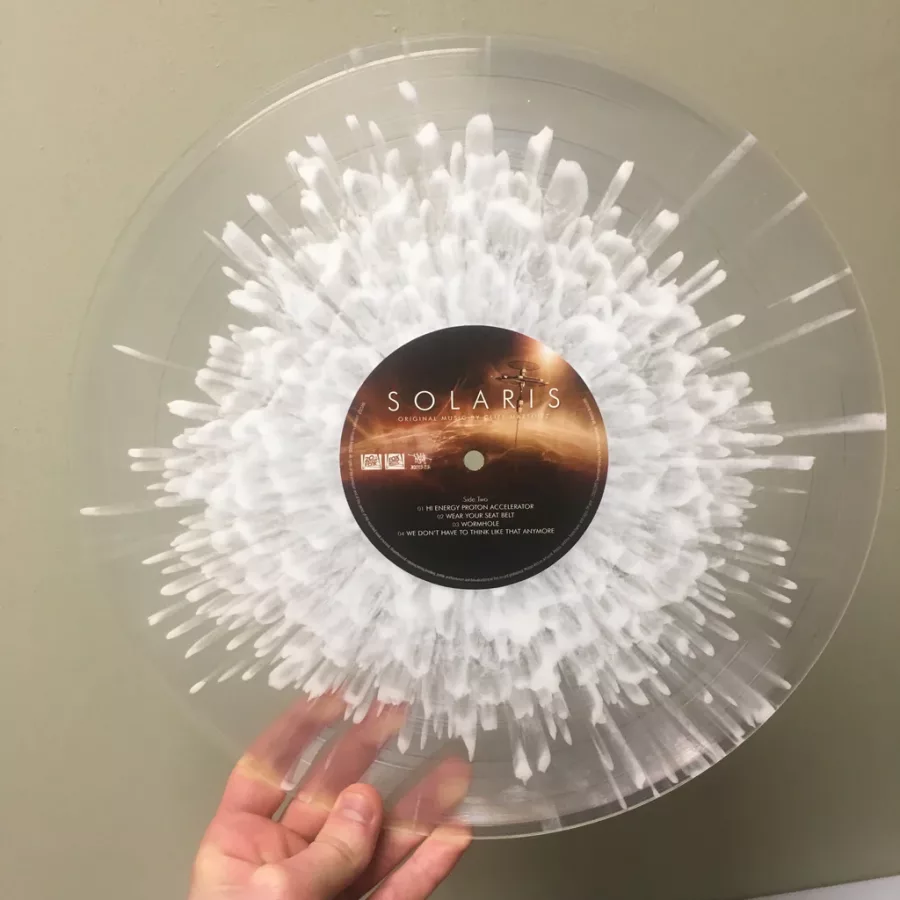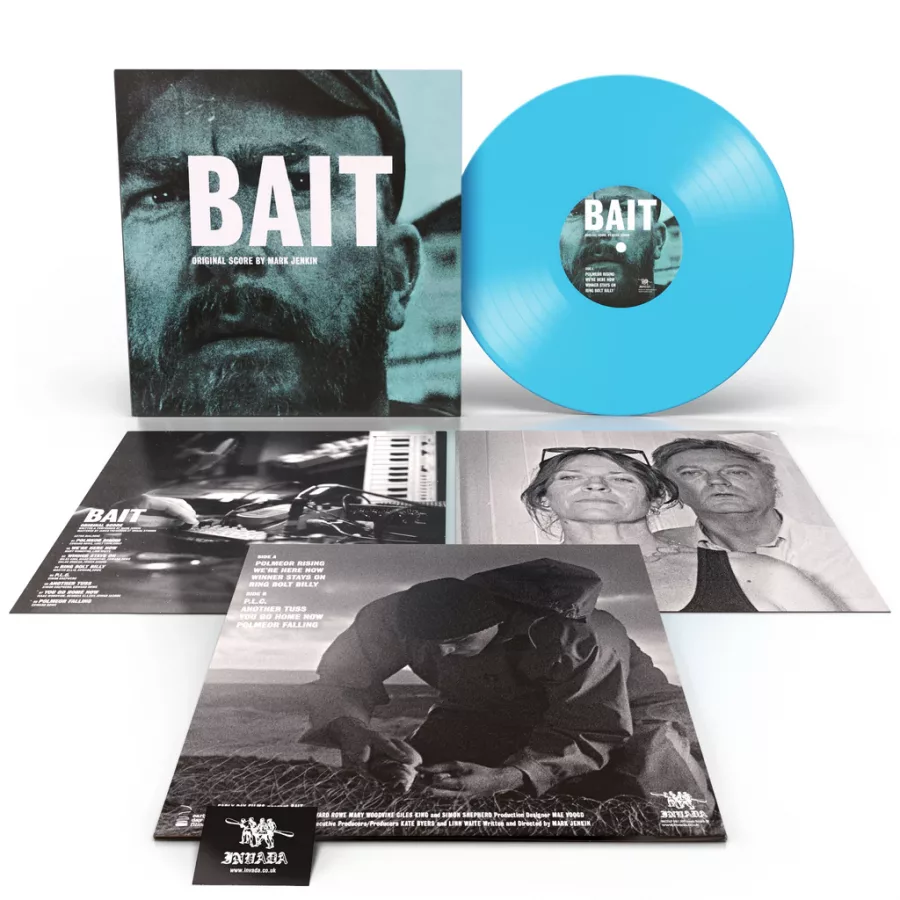
When Drive arrived in UK cinemas in the summer of 2011, few could have anticipated its impact on popular culture. Ryan Gosling’s star was well and truly on the rise, satin jackets were officially cool again, and tracks from its brooding, other-worldly soundtrack would soon find their way onto the playlists of film fans. One of those people was Redg Weeks.
“I was already a bit of a soundtrack head,” he muses. “I’d come from working with electronic music on my old record label and one of my favourite scores was Solaris by Cliff Martinez, so when Drive came out I was blown away by it. I waited for the credits at the end and I literally took notes.”
Drive struck him as the perfect fit for Invada Records, the Bristol-based record label he’d been managing since 2008, which was at that point known for its eclectic, experimental output. Inspired by what he’d heard, he immediately got on the phone.
“I noticed that Lakeshore Records had been involved with the soundtrack, so I contacted them and got through to Brian McNelis straightaway. It turns out he was the music supervisor for Drive. I told him who I was and he was like, ‘We don’t really want to do vinyl. Do you want to do vinyl?’ I was like, ‘I’d love to do vinyl, please.’”
Invada had never released a film score before and Weeks was mindful that he hadn’t consulted the label’s co-founder Geoff Barrow, known for his work with Portishead and Invada’s own BEAK. As it turned out, Barrow had recently watched Drive on a plane and was thrilled with the signing.
“I think he was in Australia at the time,” Weeks recalls. “He rang me and I explained ‘There’s this film called Drive. You should try and see it. I hope I haven’t sort of overstepped my position here, but I’ve signed the soundtrack, so that was a massive thing.”
Drive was something of a coup for Invada, though hardly off-brand. Co-founded in Australia at the turn of the millennium by Barrow and fellow musician Ashley Anderson, the label had always been buoyed by a can-do, benevolent spirit. If the duo liked an artist and could help platform them, they would, which led to an early focus on hip-hop and beat-driven releases, including those of Anderson’s own Katalyst project. When Barrow returned to Bristol in the early 2000s, he teamed up with entrepreneur and promoter Paul Horlick, aka Fat Paul, to establish its UK arm.
“Geoff and Paul had this vision of putting out music that they would come across,” Weeks explains. “Bands like Gonga, The Heads, and a lot of Bristol-based, avant-garde experimental bands.”
When Weeks was invited aboard, the label had already established a distinct identity of its own. Having worked at NRK, an electronic label born in the early 1990s, Weeks was aware of Invada’s reputation and saw potential in its unique direction. “My first job was to evaluate where the label was and to make some kind of business sense of it. It had plodded on and I think it was haemorrhaging quite a bit of cash and it was pretty unsustainable. There was a big scene change at the time. Independent music had kind of surged forward again and I think there was a healthy appetite for what we were doing.”
Following the release of BEAK’s debut record in 2009, Invada began to expand its reach internationally, licensing the album to American label Ipecac, which helped solidify its reputation on the global stage. But while Drive was Invada’s first major soundtrack signing, there was another score closer to home that would play its part in establishing Invada’s film credentials – DROKK, the project Barrow originally composed alongside Ben Salisbury for 2012’s Dredd, based on the graphic novels published by 2000 AD.
“Their score ultimately didn’t get used, but for Geoff, 2000 AD is a massive part of his life. We made a pilgrimage to Oxford, met them and explained that we had this unused score, named after a swear word in the Dredd universe. They were really gracious and said, ‘If you want to release it, you’ve got our blessing.’ So we did. And it blew up. 2000 AD let us put their logo on the back of the record, so it was almost like an endorsement.”
DROKK’s surprise success and the enthusiastic reception of Drive’s first pressing on wax came at a time when the vinyl revival was entering full swing, with soundtracks playing an integral role in the scene.
“As a label, we were very much aware that we didn’t want to kind of tie our flag to the masthead as an out-and-out soundtrack label, because we weren’t that. We had a vested interest in soundtracks, but we didn’t just want to ring up any record company and go, ‘Yeah, we’ll release this because it’s a soundtrack.’ We wanted to curate and we wanted to be discerning, we didn’t want it to be like, ‘Oh, we’re going to be a soundtrack label.’”
Alongside the work of fellow UK-based soundtrack label Death Waltz Records, the early 2010s would see Invada ushering in a shift in the UK independent music scene: there was success to be found in releasing film scores on vinyl, as well as conventional artist records, although there was much to be learned from the latter.
“We wanted to treat the soundtrack like an artist’s record,” Weeks explains. “We know it’s not that, but we want to put the same effort we would put into an artist’s album into a score, whether that’s a film, TV, or video game score. We didn’t want to just be a faceless label that does licences.”
It’s in that spirit that Invada sought to build relationships not just with international labels, but artists themselves. Early releases from composer Brian Reitzell, whose Hannibal soundtracks were released on the label between 2014 and 2016, laid the foundation for the way the label would look to work with composers moving forward.
“When we were doing Hannibal, Brian came over to London,” Weeks recalls. “We met up and spent a couple of days together. Brian curated all of the Hannibal stuff on his own and spent hours and hours on it.”
Another musician whose enduring relationship with Invada would prove invaluable was Clint Mansell, who helped Weeks secure the rights to one of their most coveted releases: Cliff Martinez’s Solaris score.
“I chased that record,” Weeks recalls. “But I was talking to Clint Mansell one night and he said to me, ‘Do you want me to write a letter to 20th Century Fox?’ He’d done work for them on other things and he wrote a letter saying, ‘To whomever this may concern, these are my friends…’ And it massively helped. I got an email back and that deal was in the bag. And that’s been one of our biggest score releases in the last 14-15 years.”

Having already cultivated an impressive catalogue by the mid-2010s, Invada was finding itself becoming something of a tastemaker. Offers emerged to release a wider range of titles, yet Weeks and the team remained mindful of their roots. They couldn’t release everything, but they remained eager to advocate for releases on other labels that felt like a good fit for their established audience.
“There were certain things you’d get offered and things we missed out on that we wished we’d had, but we brought in a few scores that were nothing to do with Invada. I never went after Mica Levi’s Under the Skin, or Clint Mansell’s Stoker, for example, but I’d seen both in the cinema and loved them. I contacted Milan Records and said, ‘I know it’s your property and I know you’ve planned a record, but can we buy some for our webshop?’ It’s not because we wanted to pretend that it’s our release, but we had a ready-made audience in the UK and we must have bought 500 units. We were happy to do that.”
Following DROKK, Barrow and Salisbury were commissioned to create the score for Alex Garland’s Ex Machina in 2015, which would help foster a relationship with A24, which continues to this day. Alongside similar partnerships with the likes of Netflix and major US record labels, this has bolstered Invada’s output significantly.
“That was ginormous for us,” Weeks states. “Ex Machina really cemented us as a label that was putting out a lot of really great soundtracks, but it also happened to be Geoff’s label. People really started to understand that we were curating what we wanted around that time.”
While Barrow’s name had helped build Invada’s profile in its early days, he and Weeks were keen to ensure that, despite familiar names and high-profile intellectual properties, the music always came first. “I guess it’s a bit like Jack White,” Weeks muses. “He’s got his pressing plant in Detroit, but at the end of the day, you want things to run on their own merit. I think we’ve done enough to kind of earn our status. We don’t have to lean on that and it’s great. Ultimately it’s become its own entity and that was always what we wanted – to keep our underground integrity where all of a sudden we’re working with major Hollywood film companies. That was the beauty of the label.”

Weeks’ approach to releases still holds true to the ethos upon which Barrow and Anderson established Invada, be it a Hollywood production or a project closer to home. In particular, one release holds a special place for Weeks – the soundtrack to Mark Jenkin’s Bait.
“That’s one of my proudest moments,” Weeks enthuses. “I was in Wadebridge in Cornwall and there’s this cinema called the Regal. It was the summer of 2019 and I remember seeing the Bait poster with Ed Rowe on it… I came back to Bristol, saw posters for it and went to see it. When the credits came up at the end, you could have heard a pin drop. Everyone was transfixed by it.”
Weeks promptly texted Barrow to explain what he’d seen, eager to find out more about the score.
“I said, ‘I know this sounds weird, but it’s a thriller meets a sort of art film based in a Cornish fishing village and the score is like Aphex Twin.’ It was a hard one to explain, but there were no credits for the score, so I found Mark on Instagram and messaged him.”
For two days, Weeks waited for a response. Jenkin later replied, surprised by Weeks’ enthusiasm for a soundscape that he didn’t even consider to be a score.
“I asked him who did it and he explained that there wasn’t really a score and that it was just him on his keyboard. I said that it was brilliant and asked him if we could release it, but he didn’t really know what to say. Eventually, we met up when he came to Bristol for a short film festival and we ended up putting out Bait. And I love that score. I didn’t care how many units it sold, because the people who love it truly love it.”
Invada’s ability to release a major score, such as Drive or the Stranger Things soundtracks, doesn’t necessarily facilitate a smaller passion project like Bait. For Weeks, the approach to each project has always been the same.
“I don’t see the difference,” he states. “Of course, I understand the sales are bigger, but I’m proud of both of them. That’s what I think the true spirit of Invada is: we’re not just chasing money here. We have to have records that sell and we have to have certain things we know we can do, but I see no difference between the score for a Netflix show with a billion streams and an eerie fishing drama set in South Cornwall. I’m not trying to make out that we’re anything other than what we are.”
Published 5 Jun 2024

The Assassination of Jesse James by the Coward Robert Ford OST arrives on whiskey-coloured wax this month.

The acclaimed American composer revisits some of his most iconic original scores for the Hail, Caesar! directors.

By Emily Bray
To the kids with the “coolest jobs on earth”, being yourself is all that really matters.